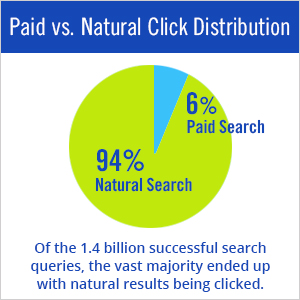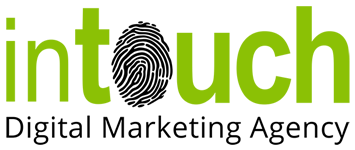Organic and paid search are tactics that achieve the same objective. Search Engine Optimization (SEO) fuels organic search results. Search Engine Marketing, which includes Pay-Per-Click (PPC) brings in paid results. Both get your message to potential clients. However, the effectiveness and cost of each, and the manner in which you deliver the message are quite different.
 The Pros and Cons of Paid Search (PPC)
The Pros and Cons of Paid Search (PPC)
The upside to paid search is speed and precise geo-targeting. If you need immediate, qualified leads, in a particular geographic area, Paid Search is the name of the game. It’s instantaneous, no matter where the targets live. Not only that, if you ‘purchase the rights,’ you guarantee a spot on page one of search engine results.
The downside is that paid search comes with a cost attached. This cost varies based on some different factors. Things to consider are the geographic locations of your customers and the competition in your search category. The larger the reach and the more competitive the category, the higher the cost.
Another downside is that an ad is clearly labeled “AD” in Google’s search results. That label diminishes the customer’s perception of quality. This can result in a lesser ROI versus organic placement.
Conversely, statistics point to the fact that ads produce more conversions per click than an organic search result. This probably occurs because paid search gets backed up’ by professionally conceived landing pages that motivate the visitor to complete their inquiry process.
The Pros and Cons of Search Engine Optimization
The upside of organic search, on the other hand, is its inherently low cost. Of course, nothing is “free.” Technically, however, there is no specific cost attached to a search initiated from a search engine page. The hidden cost comes from hiring keyword strategists and content writers. They achieve results through careful search optimization techniques. Further, search engine optimization (SEO) gives the impression of reliability and substance. This is a major factor, resulting in significantly higher click percentage versus paid search.
 Search engine users overwhelmingly click on organic results by a margin of 94 percent to 6 percent. That’s according to new research from GroupM UK and Nielsen, published by eConsultancy.
Search engine users overwhelmingly click on organic results by a margin of 94 percent to 6 percent. That’s according to new research from GroupM UK and Nielsen, published by eConsultancy.
SEO and PPC – An Integrated Approach
While Paid Search (PPC) can produce immediate leads, it also provides important directional input. Using Paid Search allows you to confirm the type of search words and terms people are entering to find a particular product or service. This information is vital to your optimization efforts.
Also, once you reach a ‘balance’ between Organic and Paid Search, you can lower the Paid Search budget in favor of organic. This decision comes about once a program is in full swing and enough data has been accumulated to make the right choices.
While the use of Paid Search may (and in most cases should), precede an SEO program, there isn’t much of a “chicken and egg” situation. SEO and PPC work independently, but they work best when used together.

[…] true that those past campaigns, conducted by ourselves and others, would look a bit different if search engine marketing came into play. In the final analysis, however, the psychology and science of consumer behavior […]